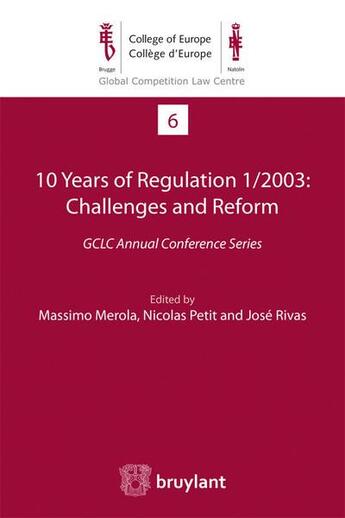-
Date de parution : 20/10/2015
-
Editeur :
Bruylant
-
EAN : 9782802752943
-
Série :
(-)
-
Support :
Papier
Résumé:
The year 2014 marked the 10th anniversary of the entry into force of Regulation No. 1/2003. Since one of its key objectives was to decentralise the enforcement of EU competition law, the GCLC dedicated its annual conference to reviewing the first ten years of implementation, with the aim of... Voir plus
The year 2014 marked the 10th anniversary of the entry into force of Regulation No. 1/2003. Since one of its key objectives was to decentralise the enforcement of EU competition law, the GCLC dedicated its annual conference to reviewing the first ten years of implementation, with the aim of identifying what has and has not worked at NCA and national court level.
In order to bring an empirical perspective to this area, the GCLC organised a series of «Decentralised Lunch Talks» at three prominent NCAs (France, Italy and Poland). The talks facilitated the gathering of empirical data on the implementation of Regulation No. 1/2003 at national level and enabled a comparison of the various experiences across the EU, which provided the starting blocks for discussions at the annual conference.
In terms of content, the conference reviewed: (i) areas where the regulation has delivered, (ii) areas where it has not delivered, and (iii) suggestions for improvements. The following topics served as signposts for discussions:
- NCA-Commission cooperation - NCA-ECN cooperation - Exchange of information - Leniency issues - NCA-national court cooperation - Commission-NCA cooperation - Effect on trade, parallel application of EU and national law and the convergence rule - Impact of EU-court decisions on national enforcement (Tele2 Polska, VEBIC, Pierre Fabre, Expedia, etc.) With this background, the book follows an original structure: it explores the various issues that arise over the life-cycle of cases that fall within the scope of Article 101 and 102 TFUE.
Moreover, from a methodological perspective, the contributions of the authors are strongly empirical in content.
Donner votre avis









